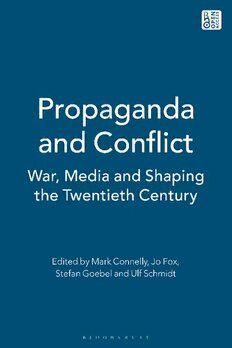
Propaganda and Conflict: War, Media and Shaping the Twentieth Century PDF
369 Pages·2019·24.743 MB·English
Most books are stored in the elastic cloud where traffic is expensive. For this reason, we have a limit on daily download.
Preview Propaganda and Conflict: War, Media and Shaping the Twentieth Century
Description:
Propaganda has always played a key role in shaping attitudes during periods of conflict and the academic study of propaganda, commencing in earnest in 1915, has never really left us. We continue to want to understand propaganda’s inner-workings and, in doing so, to control and confine its influence. We remain anxious about pernicious information warfare campaigns, especially those that seemingly endanger liberal democracy or freedom of thought. What are the challenges, then, of studying propaganda studies in the twenty-first century? Much scholarship remains locked into the study of state-led campaigns, however an area of special concern in recent years has been the loss of official control over the basic instruments of mass communication. This has been seen in the rise of ‘fake news’ and the ability of non-state actors to influence political events. This volume presents the latest research in propaganda studies, featuring contributions from a range of leading scholars and covering the most cutting-edge scholarship in the study of propaganda from World War I to the present.
See more
The list of books you might like
Most books are stored in the elastic cloud where traffic is expensive. For this reason, we have a limit on daily download.
